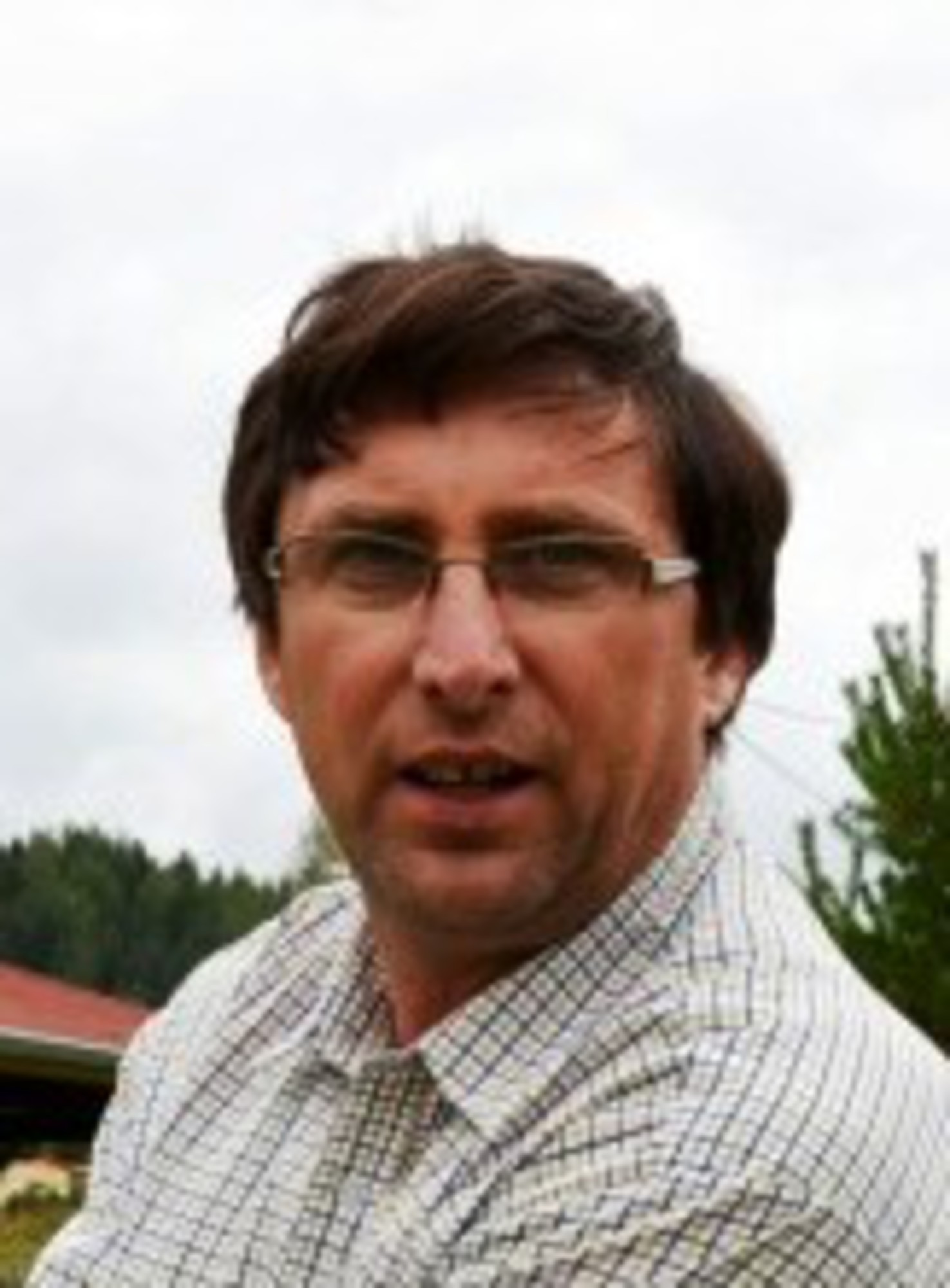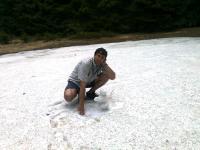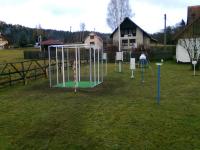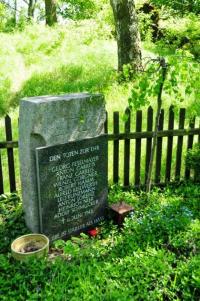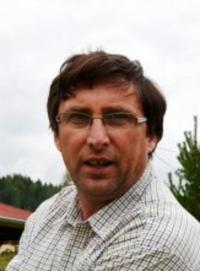“We crossed the Volga River – I cannot even describe it – and then it began. They were running after us whenever the train stopped. We were throwing them cans as well as our equipment. There was a little bit of shooting, too. It was just one party testing the other. During one stop, when there was no shooting or anything else, the train suddenly began to move. We thought: ´It has been only twenty minutes, and we were told it would stop for thirty minutes.´ We quickly threw all our stuff into the train. I was in the second car from the end. The train had four engines, two at the front and two in the middle. In the back there were only cars, and I was in one of them and I was helping to pull inside the guys who were running behind the train. Three of them didn’t manage to catch it. They remained there. We objected, but the Soviets kept going. This was when we heard them saying for the first time: ´Сколько погибло? How many died?´ That was the only thing they asked. Otherwise they didn’t care for anything else. We have never been anywhere else before, maybe just in the German Democratic Republic or Hungary at most, and now we were passing through the desert and witnessing things like this. We were just staring in amazement. Then we went on, and when we were about eighty kilometers from Baikonur, we saw the launch of the supply rocket Progress. It was visible from far away, and it looked as if a star was flying. The noise was not too audible. The guys who were there in 1980 told us that they could hear it at that time. But we didn’t miss out on anything, either, because our destination, Semipalatinsk, which we reached later, was a Russian nuclear station. A curious thing occurred there. We had a roll call in a kind of a makeshift car park. A command was suddenly called, and everybody had to get out of the vehicles and turn down the engine. We complied. In the distance we saw something which looked as a desert storm. You could have adjusted your watch by the desert storms, they were coming in regular intervals, and the temperature was stable as well, 40 to 45°C during the day. It looked as if a desert storm was approaching from the distance. But from the north? We thought it was strange. Then it swayed with us and everything was all right again. We thought, what was that? An underground atomic explosion. We saw what we saw and it was not further than seventy kilometers. So this was what I experienced there. We didn’t think much of the danger, it simply dissipated and that was it. We were like test animals. When they talk about Chernobyl and about the toxic substances in the fallout, well, we had it right there. So that was one of the things we experienced there but above all we got to try the Krug system for air space defence. On the whole, nine of us have not returned from the USSR, which was still under the three percent, and the permitted losses were four percent. I lost my friend Láďa, a guy who was sleeping next to me. It happened during a Russian army training with combat helicopters. They were shooting right next to our firing positions and Láďa was hit by some shrapnel as he was unwinding a cable between two radiolocators. They knew nothing else than ´Сколько погибло?´, and they didn’t ask anything else. When we were crossing the border between the USSR and Czechoslovakia on the way back, we were all crying, the entire train was in tears. It was such an experience that nobody can even imagine. We left in June and we returned in September. The areas where I had been are still off-limits now, because they are still classified as military zones. A tour with the Czechoslovak Socialist Army travel agency. We have lost all our illusions. One had been full of socialism, and then one arrived there and saw he panel-block buildings with no windows and the awful poverty and beggars. I was fascinated by the rocks which were by the railroad near the city of Aralsk. One of the rocks had been cut into a sculpture of Lenin pointing towards Aralsk with his arm. There was an inscription on the rocks: ´Comrades, you are going the correct way.´ I thought: ´Yeah, right, you are indeed taking the correct way.´ There was a cow tied to a post next to it. When I was released from the army, they gave me a red card. ´Boy, there will be no capitalist West for you anymore!´ That was what they told me. I was only allowed to travel to the German Democratic Republic, and I had to be accompanied. That meant that some communist, some of their collaborators, had to go with me. Except this I was not allowed to travel anywhere.”
